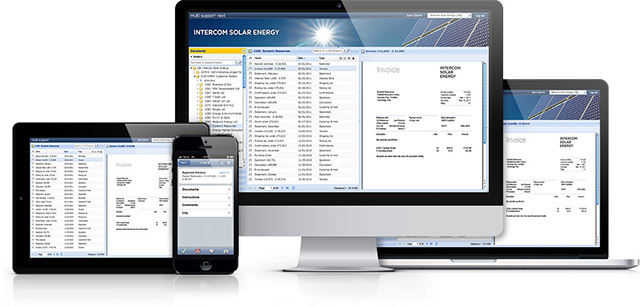Blog
Java is dead. Long live Java.
Have you heard it? "Java is a threat to your IT security, and generates all sorts of problems every time Oracle releases a new version"
 How can we as a responsible IT vendor with thousands of companies running our software even consider using anything as unsecure as Java.
How can we as a responsible IT vendor with thousands of companies running our software even consider using anything as unsecure as Java.
The short answer is we can't. And we don't.
A complete and more subtle answer takes a few more words.
Zero install client
Keeping so-called “fat clients” up to date on myriads of different PCs, including the ones at home, and the ones at airport lounges, proved to be a nuisance to both IT staff and end users.
Hence the more forward viewing vendors developed a web client to their business systems, leaving behind the cumbersome fat clients. No more fat clients to install – everything available everywhere – zero install.
And with that move also leaving behind the need to develop a client to every variant of a PC in the company. Or more realistically abandoning the rigorous restrictions on what PCs could be deployed. Suddenly Apple Macs where welcome in the office as well.
JAVA applets
At that time, the way to make full function business class applications in a web browser called for Java applets. Small programs that where downloaded automatically as needed, to extend the basic functionality of the browser. Everybody did it this way. Banks, insurance companies, online retailers, Multi Support – the lots.
But for a Java applet to run your PC or Mac needs the Java runtime. As this is something extra, and running under the hood, most people did not pay attention to keeping it up to date. Anything outdated in the Internet is a hazard. Java included.
HTML5
Luckily modern browses offer a viable alternative to Java applets – HTML5. This new version of HTML allows you to build full functional business applications that run in any browser. On a PC, a Macbook, an iPad, a Nexus 7, an iPhone, or an Android cellphone. Without any Java applets.

Next is anywhere. On PCs, Macbooks, tablets, and cellphones. Anywhere.
We have of course updated Next to using HTML5 instead of Java applets, and because it is truly “zero install”, the moment you upgrade your Next server, everyone will be using the new and lighter HTML5 version.
That’s why the short answer is “We don’t”. We don’t use Java applets anymore. They had their time, but it is over. Exactly like heavy fat clients that require to be developed to, and installed on, each and every device you want to use. They had their time, but it is over. Todays business user won’t take no for an answer, when they bring their own devices to work. “Sorry we don’t support Macs”, is simply not an acceptable answer anymore.
On the server side
The same goes on the server side. Nobody is taking no for an answer anymore. Saying to a CIO that “Sorry we don’t support Linux”. Or “We don’t believe in cloud”. Or going against whatever their infrastructure need might be is a no go.
For that reason you may choose to run your Next in the Cloud, on IBM i, Windows, OSX, Linux, AIX, or whatever fits your exact needs.

Next is anywhere. On AIX, IBM I, Linux, Windows, and Mac OSX. Anywhere.
We deliver this flexibility using primarily Java on the server side.
But we don’t take part in the religious fight between righteous believes of Java, C#, Scala, Ruby, Objective C, or any other “programming goddess”. We constantly evaluate what tools bring us, and our clients, the most “bang for the buck”. In the long run that is.
Currently our primary development tools are Java, Javascript, and C#. But the toolbox comprises many more.
New will be added, and old disappear. But in the foreseeable future,
Java - on the server side - is going nowhere.
Java is dead. Long live Java.








